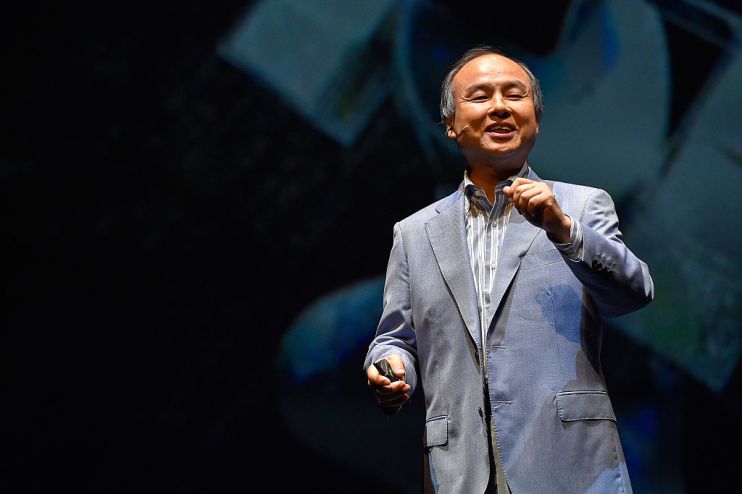SoftBank caves in to investor pressure and launches $9bn share buyback

SoftBank founder Masayoshi Son has pledged as much as ¥1tn ($8.8bn) through a new share buyback programme over the next 12 months, in a bid to get investors back on side after the group’s Vision Fund unit plummeted to a record quarterly loss.
Pressure had been mounting among SoftBank’s largest shareholders – including activist hedge fund Elliot Management – who had grown increasingly convinced that the only short-term solution to its lacklustre share price was a new round of repurchases.
SoftBank’s original $100bn Suadi-backed Vision Fund reported a record loss in the second quarter, after the value of its publicly listed portfolio companies plummeted – including Didi, as a Chinese government crackdown weighed on tech companies in the region, and Korean e-commerce giant Coupang Inc.
The fund’s investment arm lost 825.1bn yen in the second quarter, (£53.7bn), while the overall technology conglomerate reported a second quarter net loss of 397.9bn yen (£26bn).
“What happened to us? We are in the middle of a blizzard,” Son said at an investor presentation following the company’s results.
“The SoftBank Vision Fund performance is not something I’m proud of.”
Under the new share buyback programme, the Tokyo-based company said it would repurchase up to 14.6 per cent of its stock over the next 12 months. Son warned that the repurchasing programme might not be completed in the next year – in which case, he said it could be extended.
“We had a heated discussion at the board meeting. We decided now is the time to buy back shares,” said the multibillionaire founder, who owns more than a third of the company.
“I am so excited, because I am a shareholder.”
It comes hot on the heels of the company’s last buyback programme – an unprecedented 2.5tn yen share repurchasing scheme last year – that helped the SoftBank rebound from a pandemic dip and tripled its valuation.
Son also said the company would diversify the location of its Vision Fund investments, and outlined a 35 per cent allocation to the US and 19 per cent to China.